Phuket's glory is its majestic coastline. Thailand's southern isle of paradise, Phuket Island is bounteously provided with a wide array of attractive beaches and idyllic islands surrounded by the warm turquoise waters of the Andaman Sea. Beaches range from gentle crescents of sand with calm waters to rocky headlands pounded by raging surf. The island's western shore is dotted with dozens of spectacular beaches, bays, capes, cliffs and coral reefs
Phuket Island is one of the most popular travel destinations in Southeast Asia. It has more than 20 scenic white sand beaches, crystal clear blue waters; colour reefs rich with sea life as well as dozens of lush neighbouring islands. Green tropical jungles with cool waterfalls and a fantastic wild life.
It is a Mecca for diving, snorkelling and sun bathing. Experienced and novice divers can enjoy a variety of underwater landscapes with professional guides throughout the year where the water temperature always hovers at around +30 degrees.
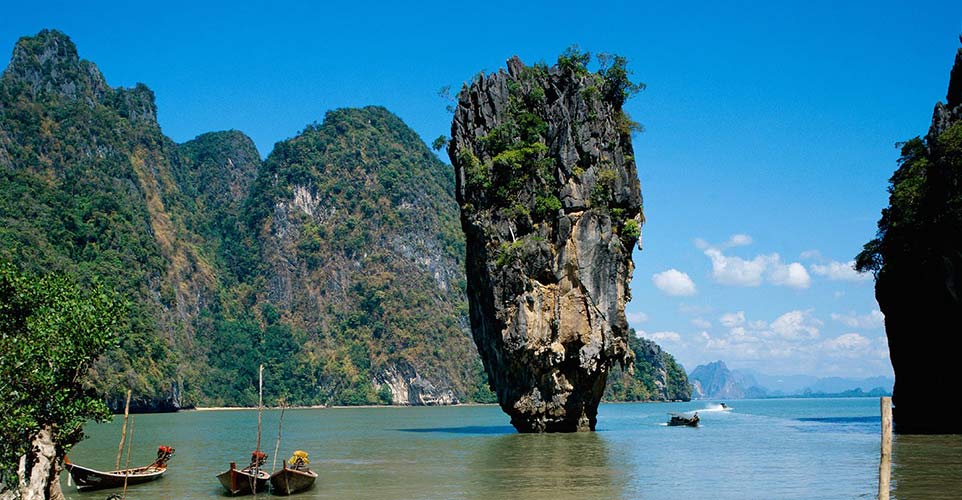
For land-lovers, there are also many sights from which to choose. The island hosts spectacular views from high mountain peaks accented by limestone and lush green jungles. There are also a number of beautiful waterfalls, parks and nature reserves for the outdoor explorer. Butterflies, tropical fish and orchids can also be enjoyed at the local farms and aquariums, while cultural and architectural attractions include Buddhist Temples and Nineteenth Century mansions.
Origin of the name:
Phuket (formerly known as Tha-Laang or Talang) is one of the southern provinces (changwat) of Thailand. The name Phuket is apparently derived from the word Bukit in Malay, which means mountain or hill, as this is what the island appears like from a distance. Before that its old name was Ta-lang (in Thai): The word is derived from the old Malay "Telong" which means "Cape", which is still in used for one of the main districts in the Phuket area. The ph of "Phuket" is an aspirated hard "p", not a soft "f", so the name is pronounced (roughly) "Poo-get".
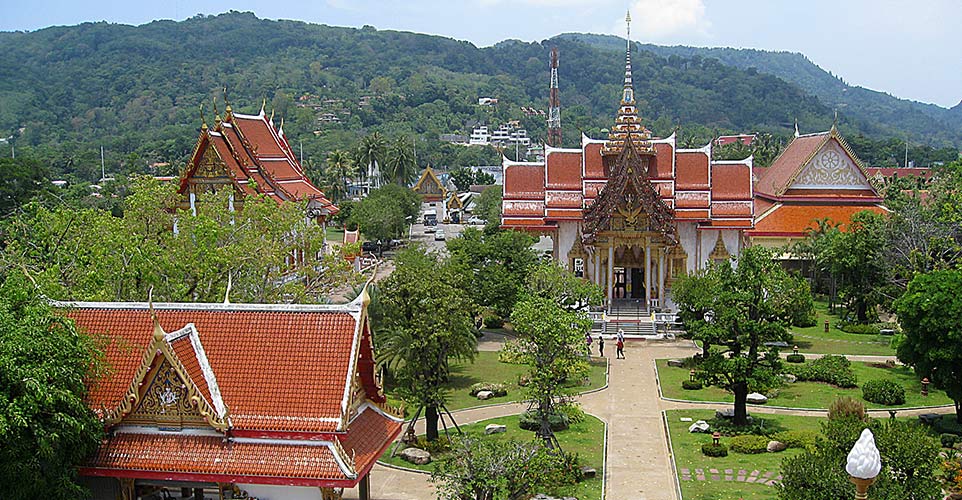
Patong Beach:
Originally a fishing village, currently Patong is Phuket's most developed beach offering virtually every kind of entertainment imaginable. Exuberant nightlife and numerous leisure, sporting, shopping, and recreational options flourish along its three kms of beach. The beach is lovely and excellent for watersports including sailboarding, parasailing and snorkeling as well as for relaxation, sunbathing and strolling. Besides the beach one can also enjoy the various eating joints and shopping places at the Patong area.
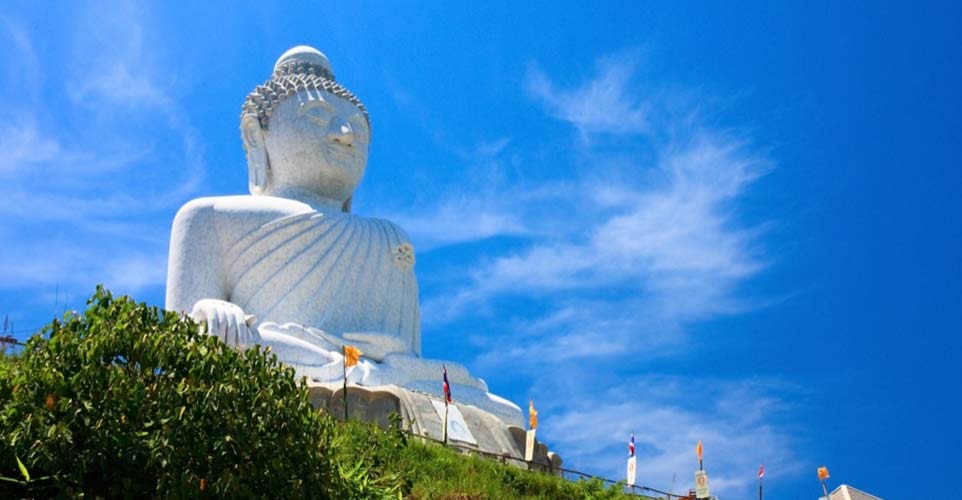
History:
Phuket Island has been well known for a long time, first by miners and later by travellers. The beauty of the beaches, the fascinating landscape and the elegance of the coral reefs under the sea, resulted in it being dubbed the Pearl of the South.
The name of the island means Crystal Mountain. It is 862 kms from Bangkok. Phuket was first introduced to the world as Junk Ceylon, the name that appears on the old maps written by Ptolemy (1186 – 1256 AD), a Greek geographer. It was mentioned in Ptolemy’s Geographic that voyages from Suwannapoom to the Malay Peninsula passed the cape of Junk Ceylon. Trade contracts between Siam and Holland written in the Ayutthaya period (1664 AD), also mentioned the town named Ujung Sylan, believed to be Phuket.
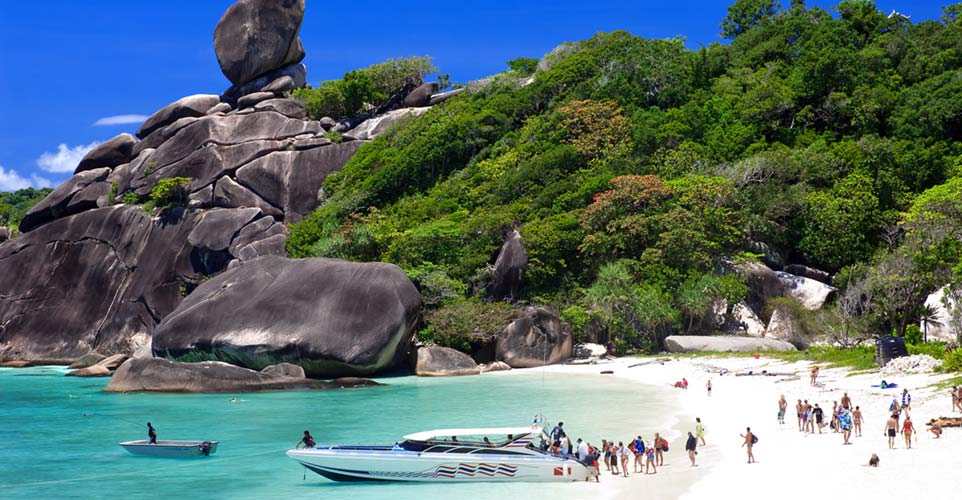
Phuket has been mentioned from time to time in history, but the most memorable incident happened in the early Rattanakosin period related to the Siam-Burmese war which created two heroines, Khunying Jan, wife of Phuket’s recently deceased governor, and her young sister Khunying Mook. The sisters assembled the troops to defend Talang, the old major city in Phuket, from Burmese army invasion. After a month of siege, the Burmese retreated. Then, King Rama I bestowed on them the honorable titles Thao Thep Kasatri and Thao Sri Suthorn.
During the reign of King Chulalongkorn (Rama V), Phuket became the administrative centre of the tin-producing southern provinces. In 1933 Monthon Phuket was dissolved and Phuket became a province by itself.
Culture:
Like other regions of Thailand, Theravada Buddhism is the dominant religion in Phuket. The people practice Buddhist rites similar to people in other regions. But Phuket also has a large number of Chinese descendants who profess Mahayana Buddhism and Taoism, with their distinct culture.
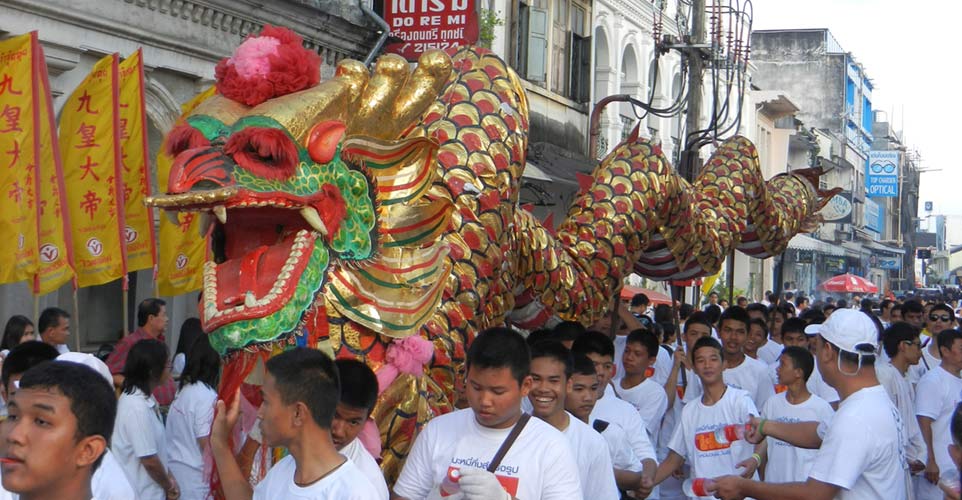
The most sacred and the oldest Chinese Taoist temple is Put Jaw temple, which is dedicated to Kuan Yin, the Goddess of Mercy. Other Taoist temples are Jui Tui temple, dedicated to Kiu Wong In, a vegetarian god (it is the temple where the Vegetarian festival is celebrated). The famous 9 day Chinese Vegetarian Festival celebrated annually during October indicates the deep roots that the Chinese culture has in Phuket. Touring old Phuket town you can also see Sino-Portuguese architecture, which is now in the preservation area of the town. There are also Sikh and Hindu temples to serve the small number of followers residing in Phuket town.
